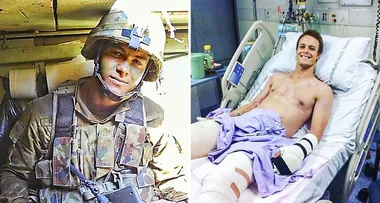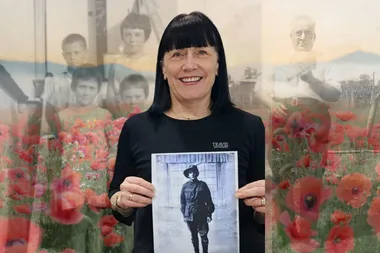- Rod Miller, 66, from Sydney, NSW, stumbled across a forgotten diary of a nurse imprisoned during the World War II.
- His research led him to a group of 18 nurses who endured terrible conditions even eating glue to survive whilst held captive in Rabaul, PNG, and Japan.
- Rod helped to write a screenplay ‘Sisters of War’ and penned a book ‘The Lost Women of Rabaul’ about the nurses’ bravery.
- Victory over the Pacific Day, VP Day on August 15, marks 80 years since Japan’s surrender to the Allied forces when we honour the service and sacrifice of Australians during the war.
Here Rod shares the nurses amazing story in his own words
Flicking through the yellowing pages of a tattered notebook entitled GK’s Nonsense, I was intrigued.
The diary was filled with hundreds of musings, but the first one in particular, titled Evacuation of Rabaul, caught my attention.
An auctioneer, I was clearing the flat of Grace Kruger who’d been a nurse during the Second World War. I’d been appointed to clear items from her estate as Grace was going into a care home.
‘Civilian and Australian army nurses had been imprisoned by the Japanese in Papua New Guinea, and then in Japan.’
Sure the diary was important, I placed it in a box in my garage.
Years later I came across it again.
Studying the entries, I discovered that from January 1942 until September 1945, Grace and other civilian and Australian army nurses had been imprisoned by the Japanese in Papua New Guinea, and then in Japan.
READ MORE: Anzac Heroes: The Garage Girls
READ MORE: Anzac hero: How Kerry honours her Grandad’s legacy
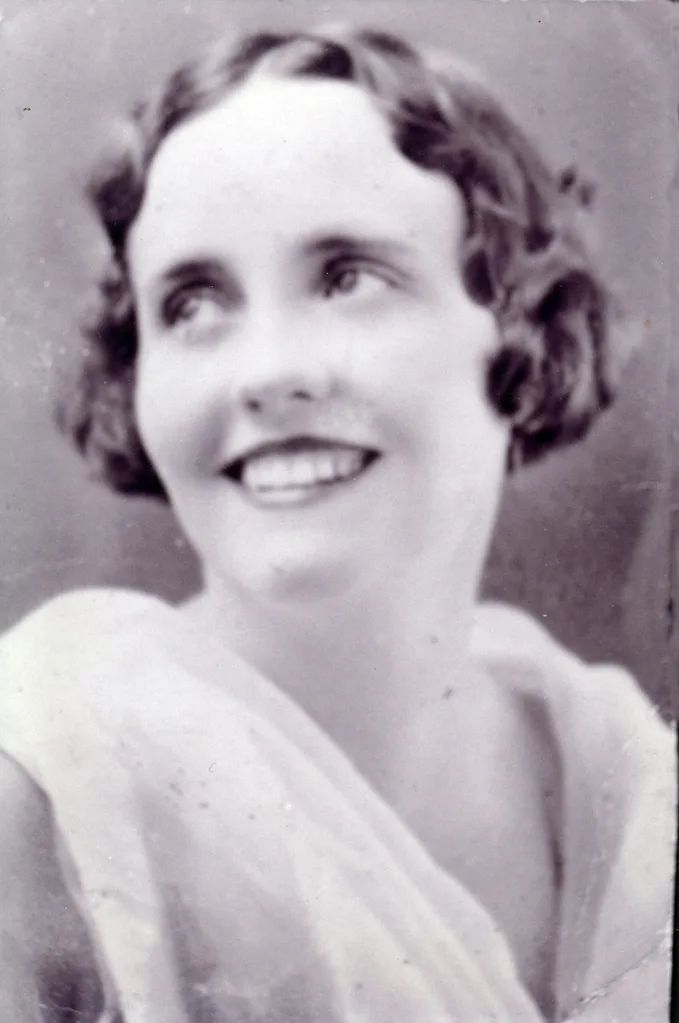
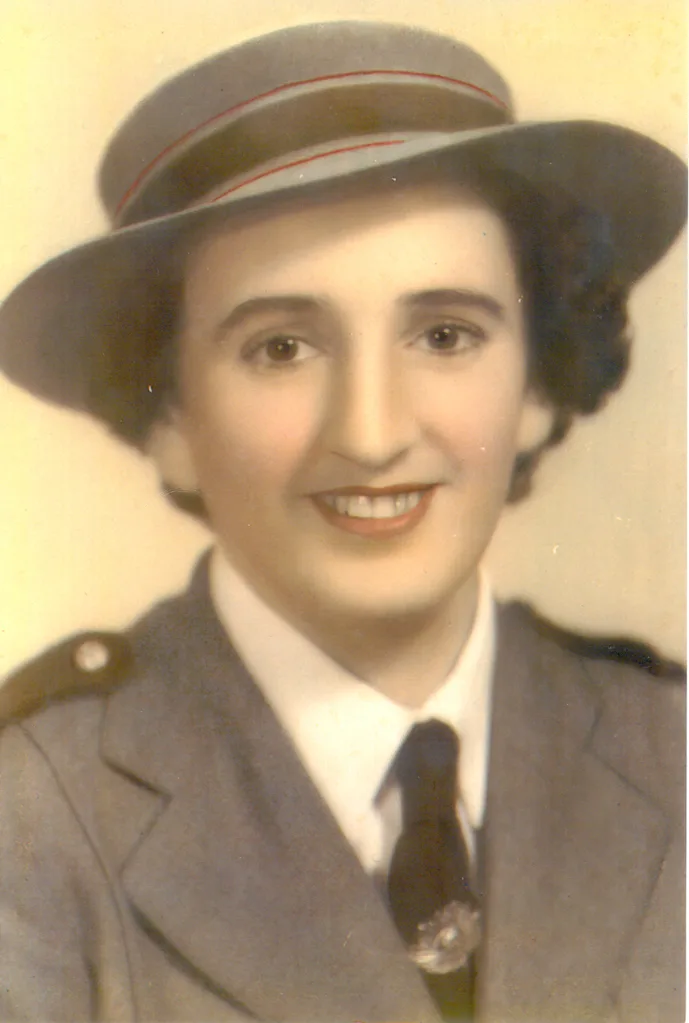
As I delved deeper into the journal, I noticed many entries were written in code that I couldn’t decipher.
Determined to get to the bottom of this brave woman’s ordeal, I sent her book to Professor Hank Nelson of the Australian National University, who confirmed Grace had been one of 18 women held captive.
The group had been made up of six army nurses as well as 11 civilian nurses – including some from the Methodist Mission and Australian Government Namanula Hospital, where Grace was stationed – plus plantation owner Kathleen Bignell.
The nurses were in Rabaul, PNG, to look after officers of the Australian 2/22nd Battalion, part of Lark Force.
The nurses were in Rabaul, PNG, to look after officers of the Australian 2/22nd Battalion, part of Lark Force.
But when 5300-strong Japanese troops landed in Rabaul in the early hours of January 23, 1942, it was clear the Australian force of around 1300 was gravely outnumbered.
Grace had written in her diary, ‘I think we’ll be taken before 6 o’clock,’ about the coming attack.
READ MORE:Anzac hero: ‘I lost my leg but it won’t stop me
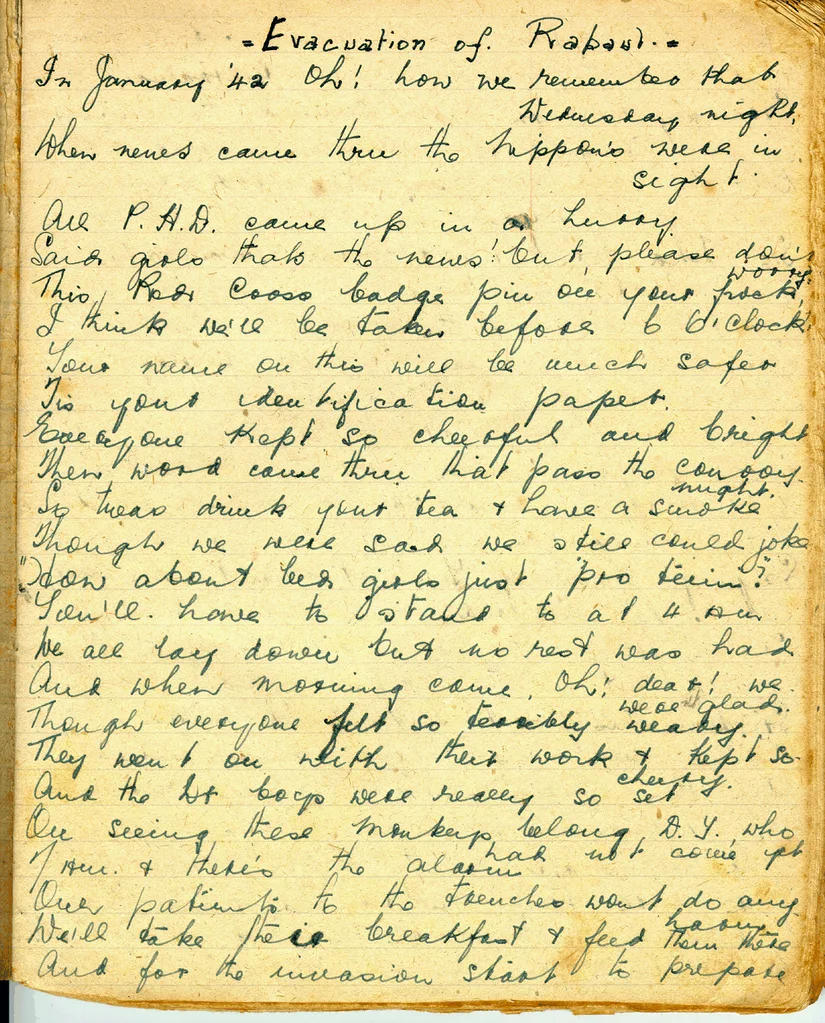
Our defenders put up what resistance they could, but were forced to withdraw. While 400 escaped, returning to Australia, those who remained were rounded up and kept as prisoners of war.
The nurses, including Grace, had been moved to the Catholic Mission in Vunapope, about 30km away, the night before the attack. There they met Sister Berenice Twohill, who was also then kept as a prisoner by the Japanese.
The nurses were left to their own devices by the guards but unable to leave.
As food became even scarcer, they even ate envelope glue and scavenged offerings of food left on graves.
Then in June, the women, along with 60 Australian troops, were shipped by boat to Japan.
They were briefly put up in a hotel, before being moved to the Yokohama Rowing/Yacht Club. With food rations scarce, the captives’ treatment by Japanese soldiers deteriorated.
The women were forced to sew and knit, and make hundreds of envelopes.
As food became even scarcer, they even ate envelope glue and scavenged offerings of food left on graves.
In July 1944, the women were moved to a former tuberculosis clinic at Totsuka, in the countryside west of Yokohama. There in sub-zero temperatures and without running water, they fashioned clothes out of canvas sails using bamboo needles.
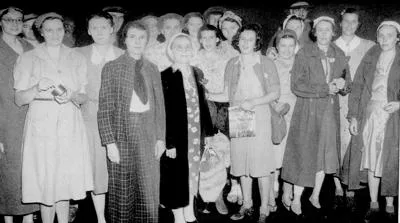
Despite everything they’d been subjected to, the women refused to break.
Grace remained optimistic that the Allies would win, and wrote of how the women kept their spirits up in spite of the harsh conditions.
Having transcribed what I could of Grace’s entries, there were some words I just couldn’t crack. She’d sadly passed in 1995 so I was delighted when I had the chance to meet one of the surviving nurses, Lorna Whyte, then 81, in 1998.
Lorna helped interpret Grace’s writing using entries from her own journal. But some parts even had her stumped.
Grace remained optimistic that the Allies would win, and wrote of how the women kept their spirits up in spite of the harsh conditions
Next, I contacted other survivors and their families.
Using diaries once belonging to Lorna, Mavis Green, Mavis Cullen, Jean McLellan, Joyce Oldroyd-Harris and Kathleen Bignell, I wove together the missing pieces of the puzzle. Reading about the day they were liberated after the war ended in August, 1945, sent shivers down my spine.
‘No-one could possibly realise the feeling of it all… too indescribable for words,’ Jean had written.
Finally free after three years and eight months, the women landed in Darwin on September 13, 1945. Many were suffering undiagnosed PTSD, but they were forever linked by their time in captivity.
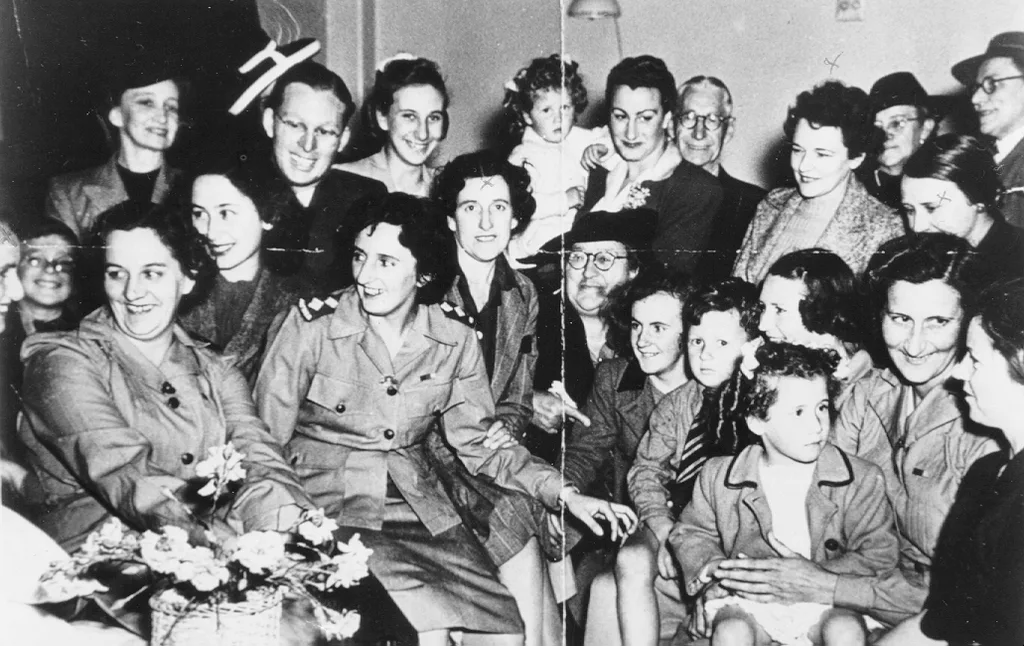
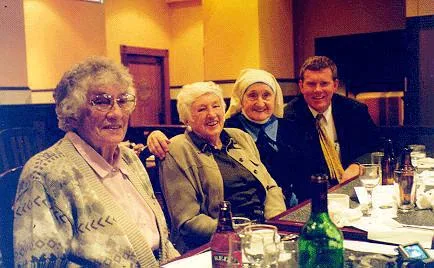
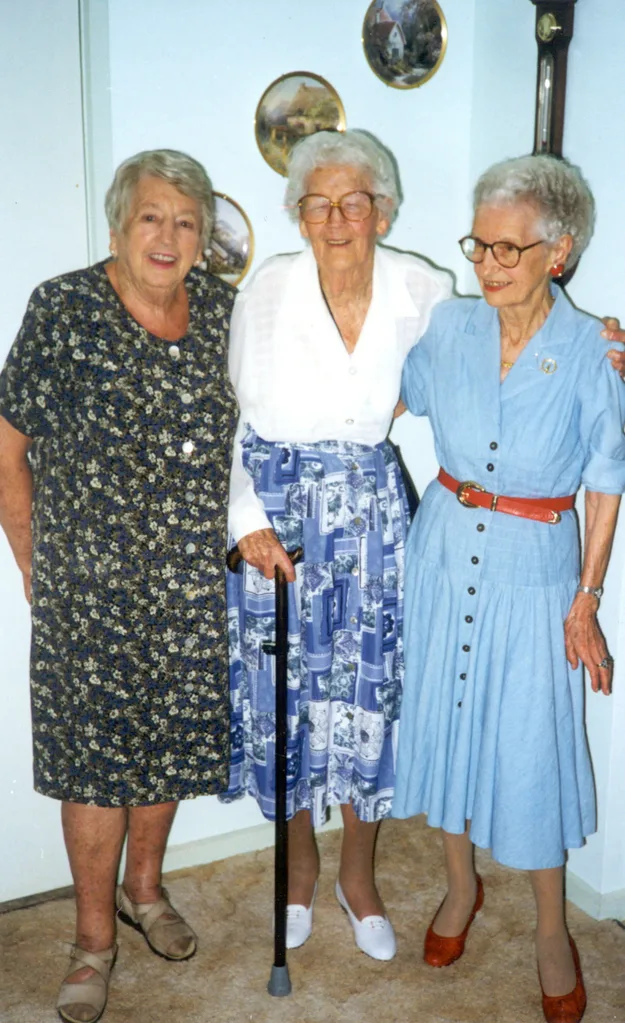
Deeply moved by their resilience and astonished no-one knew of the incredible story, I helped write a screen play that became a film, Sisters of War, starring Sarah Snook.
In 2011 Lorna and her daughter Patricia journeyed to Japan for a formal apology from the Japanese Foreign Minister.
‘Their bravery shall never be forgotten’ Rod Miller
‘They’re going to so much trouble to be friends, I think we should reciprocate and make peace,’ Lorna told The Aucklander.
Lorna died in 2013, aged 98, and Sister Berenice, the last remaining survivor, passed in 2017, aged 100.
To help their story live on, I released a book based on their journal entries in 2022, titled Lost Women of Rabaul.
This year commemorates the 80th Anniversary of Victory over the Pacific , VP Day on August 15.
I’m honoured I could help share the nurses’ incredible story. Their bravery shall never be forgotten.
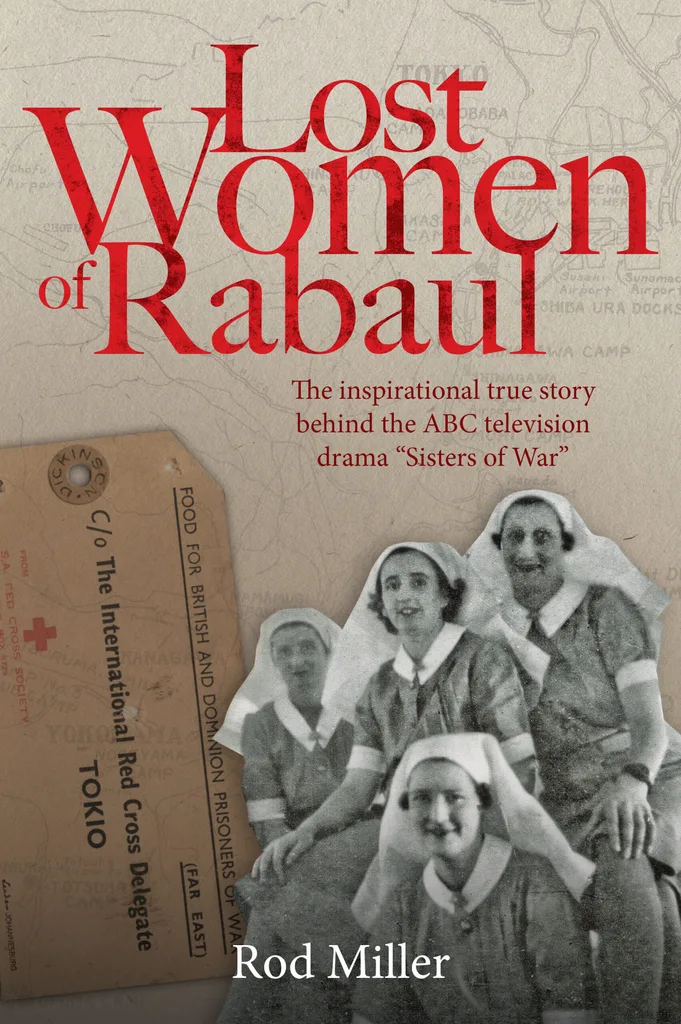
 supplied
supplied
